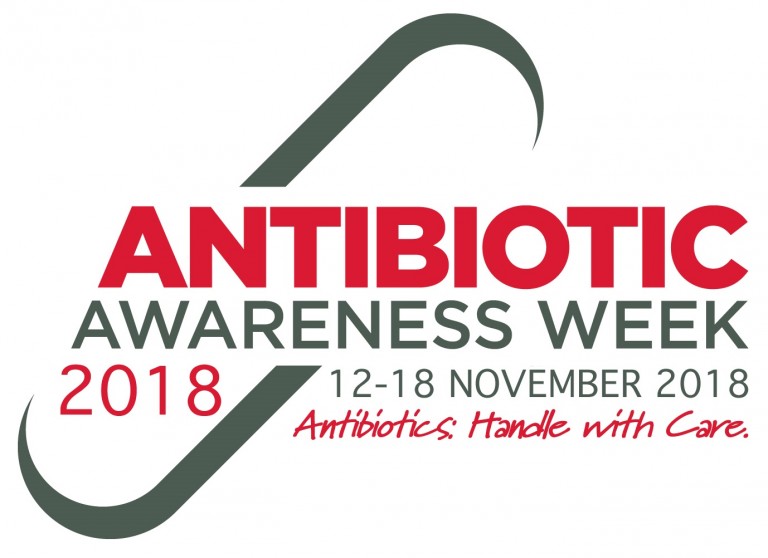Antibiotic Awareness Week 2018
Antibiotic Awareness Week (12 – 18 November 2018) “aims to draw attention to the role of effective use of antibiotics in preventing and containing antimicrobial resistance (AMR) [1][2].”
Bacteria are a type of biological cell. They are everywhere; it’s estimated there are 5×10^30 bacteria on Earth, making them the most prevalent life form. If weighed, all the bacteria in the world would weigh more than all the plants and animals put together [3].
Humans are host to bacteria, particularly on the skin and in the gut. Some are helpful, some are harmful. We are protected against the harmful bacteria by our immune system. Unfortunately, our immune system isn’t always up to the task such as when undergoing an immunosuppressant therapy or we have not developed the right defence response.
This is where antibiotics come in. Antibiotics complement the immune system to bolster our overall defence against harmful bacteria by inhibiting the growth or killing bacteria.
AMR can occur when bacteria adapt to the antibiotics so the targeting mechanism of the antibiotic is no longer effective, leaving behind the ‘fittest’ bacteria to survive.
The number of effective antibiotics is decreasing; paired with the time-consuming and expensive cost of developing new antibiotics, it is important we use the right antibiotic at the right time to limit the fallout of AMR.
If you think you need antibiotics, ask your doctor if they are the right treatment for you, or if there is a better alternative.
Modern medicine is remarkable, but the best medicine is prevention.


Key Messages for Antibiotic Awareness Week
• Antibiotics are effective only against bacterial infections – they cannot help you recover from infections caused by viruses such as common colds or flu.
• Misuse of antibiotics only causes bacteria to become resistant to antibiotic treatments. So when you need antibiotics in the future they may no longer work.
• Take antibiotics only when prescribed by a doctor and follow the doctor’s advice on how to take the antibiotics so that they can stay effective also in the future.
• Do not keep leftover antibiotic treatments. If you have received more doses than you were prescribed, ask your pharmacist about how to dispose of the remaining medicines.[2]
Sources:
[1] https://www.safetyandquality.gov.au/our-work/healthcare-associated-infection/antimicrobial-stewardship/antibiotic-awareness-week/
[2] https://antibiotic.ecdc.europa.eu/en/get-informed/key-messages/key-messages-general-public
[3] Whitman WB, Coleman DC, Wiebe WJ (June 1998). Prokaryotes: the unseen majority. Proceedings of the National Academy of Sciences of the United States of America. 95 (12): 6578–83.



